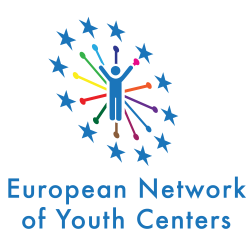The vice president of ENYC, Yolanda FLORESCU participated at Youth Centres UP International Conference as guest speaker and facilitator of the workshop SDG no.4 (Quality Education)in youth centres.
On 12 of August – the International Youth Day, organised under the UN headline “Transforming Education”, which highlights efforts to make education more relevant, equitable and inclusive for all youth, including efforts by youth themselves, and in the context of Youth Centres UP (the European Solidarity Corps project with the biggest number of volunteers, which had as result 5 new youth centres), Timis County Youth Foundation create the context for 150 young people coming from 4 continents, to promote community change through activities initiated by young people.
The message that Yolanda send to the participants, through her speech, on behalf of ENYC, is the following:
It is a great pleasure for me to be here today, in front of you and it has been for all these weeks to have the privilege to witness all the effort you put in either being change-makers, either discovering our world’s biggest challenges and the priorities we have to tackle.
We are here today inside the only youth centre in Romania awarded with the Quality Label for Youth Centres from the Council of Europe. And, even if I am the vicepresident of a network which was initiated by the Council of Europe, I am also a big fan of small-sized youth centres and I strongly believe that this project teaches a massive lesson to many public authorities when it comes to how to approach young people. The answer that this project gives is: “Go to them, in their neighbourhoods, next to their homes, in their environments and create this kind of safe spaces TOGETHER with them”.
A youth centre is definitely the space were young people discover UNESCO’s four pillars:
- Learning to LIVE TOGETHER. Is a dynamic, holistic and lifelong process through which the shared values are internalized and practiced. It involves the development of social skills and values such as respect and concern for others, social and inter-personal skills and an appreciation of the diversity of the World.
- Learning to KNOW. Implies learning how to learn by developing one’s concentration, memory skills and ability to think. Learning to know involves the development of knowledge and skills that are needed to function the world. These skills include literacy, numeracy and critical thinking.
- Learning to DO. Implies putting knowledge and learning into practice innovatively through skills development and practical know-how, development of competences, life skills, personal qualities, aptitudes and attitudes.
- Learning to BE. It involves activities that foster personal development (body, mind and spirit) and contribute to creativity, personal discovery and an appreciation of the inherent values provided by these pursuits.
Can all of these be acquired and developed in a youth centres? Can we learn to LIVE TOGETHER? Of course, we can. Can we learn to KNOW? Of course, we can. Can we learn to DO? Of course, we can. Can we learn to BE? Definitely, especially when the youth centre is in the neighbourhoods, is inside the community.
But, remember that education is at the heart of both personal and community development. And when the youth centres are developed BY young people who embrace the values of solidarity, respect for human dignity and human rights, and believe in the promotion of a fair and equal society in which pluralism, non-discrimination, tolerance, justice, solidarity and equality prevail, the future is even brighter.
I was mentioning that “Youth Centres UP” teaches a massive lesson to public authorities. But this is a coin with two sides, and we cannot expect this example to be multiplied identically, because is our common responsibility to be aware of, to respect and even to contribute to the 4 A’s for education:
- Availability
- Accesibility
- Acceptability
- Adaptability.


